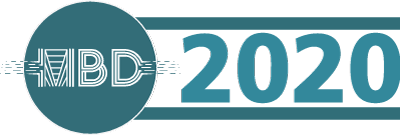Submissions
Submissions for papers to be included in the conference proceedings are open
(until 30 April, 2021)
Guidelines (Proceedings Papers)
All presenters are welcome to transform their presentations into papers. All papers will be blind peer-reviewed and will be included in the MBD Conference Proceedings Series to be published and available online and open access on the conference website without any cost.
For selected papers, authors will be asked to prepare manuscripts for a special issue on Museum Big Data for the ACM Journal on Computing and Cultural Heritage (JOCCH), https://dl.acm.org/journal/jocch.
Paper Length: 3000 – 8000 words including abstract (up to 300 words), keywords, endnotes, and references.
Deadline: 31 January 2021
Submission steps: Visit www.easyacademia.org/mbd2020, login, click on ‘New Submission’, and follow the instructions to upload your paper as a Word document. Alternatively, you can email at: mbd2020@museumbigdata.org.
Format: Word (docx)
Layout: A4, with page margins of 2.5 cms (top, bottom, right and left)
Font: Times New Roman 12pt
Line Spacing: 1.5
Endnotes are OK. No footnotes. Note markers are inserted after the punctuation mark. (e.g. ‘… museum big data systems.2 The new schemes…’)
References: Only titles mentioned in the text. For titles of translated work, references need to be in the original language with translation following and in brackets.
Referencing Style and in-text citations: APA
(https://www.avc.edu/sites/default/files/academics/sbs/APA%20format%20guide.pdf)
Acronyms/abbreviations: Please introduce acronyms/abbreviations by putting them in brackets after the full term the first time you use the term. Thereafter, you can adhere to using the acronym/abbreviation. E.g. “Museum Big Data (MBD) are getting bigger and research work on MBD grows”.
Visuals and/or multimedia elements: Place visuals and multimedia elements (photos, animations, videos, tables, etc.) in your text mentioning the copyright. If visuals and multimedia are free-licensed (e.g. Wikimedia Commons), this also needs to be clearly stated. It is the authors’ responsibility to secure relevant copyright approvals and permissions.
Deprecated Information from Abstracts Submission
Formats
The MBD conference is global and addresses museum and heritage Big Data all over the world. The accepted papers will be presented in 20-minute presentations. The Conference also welcomes posters of maximum A0 size to be presented onsite in Cyprus (premises of Cyprus Institute) and/or online. The conference will include invited talks and special sessions for ongoing research, including current research projects and PhD research. It is a hybrid onsite and online event offering the following presentation options:
- Onsite 20-min presentations broadcasted via MS Teams.
- MS Teams presentations for presenters not following onsite.
- Pre-recorded 20-min presentations
- Poster presentations of maximum A0 size to be presented onsite in Cyprus (premises of Cyprus Institute) and/or online
- Special Sessions on ongoing research in the field (including PhD research)
- Written Papers – Publications: All presenters will be welcome to transform their presentations into papers of 3000-7000 word length. Formatting instructions will follow. All papers will be blind peer reviewed and will be included in the MBD Conference Proceedings Series to be published online and open access on the conference website. For selected papers, authors will be asked to prepare manuscripts for a special issue on Museum Big Data for the ACM Journal on Computing and Cultural Heritage (JOCCH), https://dl.acm.org/journal/jocch.
- Keynote presentations: three invited world experts will present live and in-person.
Themes
The MBD conference welcomes presentations from practitioners and researchers on the work they do in museums, libraries, archives, cultural heritage and memory institutions, online, in the field, everywhere that (Big) Data and cultural heritage come together.
We aim to explore how museums and heritage/memory institutions, theories, practices and meanings are shaped via (Big) data.
This year, we put an emphasis on museums’ reactions to the world’s COVID-19 lockdown.
We welcome papers on:
- Museum Big Data in the COVID-19 and post COVID-19 times,
- Museum Big Data: theoretical issues and critical approaches,
- Data-driven museums and the world,
- Museum Big Data and data mining methodologies and research approaches,
- Issues on (Big) Data preservation, use and re-use in galleries, libraries, archives and museum (GLAMs),
- Museum Big Data and Digital Humanities,
- Museum Big Data and open access,
- Museum Big metadata and documentation,
- Museum Data and their applications in education,
- Museum research data management and applications,
- Museum digital narratives and flows,
- Museum data on the web and Social Media (including Museum Twitter Studies),
- Art Data history,
- Museum linked open data and ontologies,
- Museum data and natural language processing,
- Museum data and/from audience research,
- Museum Big Data from digitisation and collection management and practices,
- Museums Big Data ethics,
- New realities and skills for data and the museum professionals,
- Museum Big Data future(s),
… and more.
